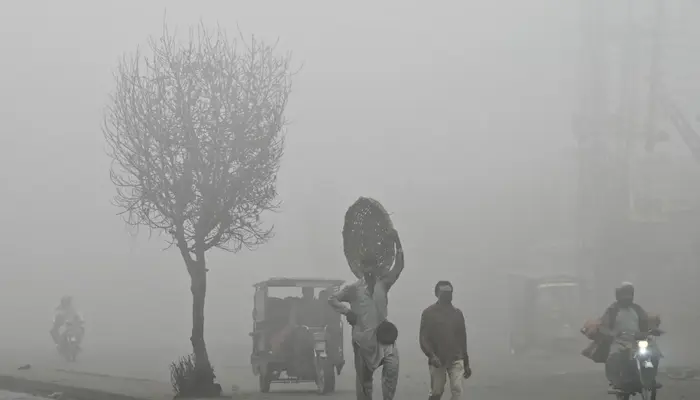
Smog has become a significant environmental and health hazard, especially in urban areas. Major cities in Pakistan have faced increasing levels of smog-related respiratory issues in recent years. Understanding how to safeguard your lungs is vital to avoiding serious health risks, such as respiratory and cardiovascular diseases. This guide provides actionable tips to protect your lungs from smog and maintain your well-being.
What Is Smog?
Smog is a harmful mix of smoke and fog formed by pollutants like hydrocarbons, nitrogen compounds, and industrial waste. Its primary sources include coal burning, automobile exhaust, and other emissions. There are two types of smog:
- Classic Smog: This type results from a combination of smoke, fog, and sulfur dioxide, often seen in humid climates. It is common during winters in countries like Pakistan and India due to increased coal use.
- Photochemical Smog: Often referred to as Los Angeles smog, this type is caused by vehicle emissions and nitrogen particles reacting with sunlight.
Both types contain harmful particles that enter the lungs, leading to long-term and short-term health issues.
Health Risks of Smog Exposure
Smog poses severe health risks, particularly for children, the elderly, and individuals with respiratory or heart conditions. Prolonged exposure to smog can result in:
- Respiratory Issues: Conditions such as asthma, pneumonia, shortness of breath, chronic obstructive pulmonary disease (COPD), and sore throat are common.
- Cardiovascular Problems: Fine particulate matter (PM2.5) in smog can increase the risk of heart attacks and cardiovascular disease.
- Lung Cancer: Long-term exposure to polluted air raises the likelihood of developing lung cancer.
These risks emphasize the importance of taking steps to protect your lungs from smog.
Tips to Protect Your Lungs from Smog
1. Monitor Air Quality
Regularly check air quality using reliable sources like the Air Quality Index (AQI). Many apps and websites provide real-time updates on air pollution levels. Avoid outdoor activities during peak smog hours when AQI levels indicate unhealthy or hazardous conditions.
Read: WHO Maintains Mpox as Global Health Emergency
2. Plan Outdoor Activities Carefully
If outdoor activity is unavoidable, schedule it during early morning hours when smog levels are lower. Wearing protective gear, such as N95 masks, can significantly reduce exposure to harmful particles. Alternatively, opt for indoor exercise on high-smog days.
3. Use Protective Gear
Always wear a high-quality mask, such as an N95, to filter out dangerous pollutants. This simple step can effectively safeguard your respiratory system during outdoor activities.
4. Strengthen Your Immune System
A strong immune system can help your body combat the effects of smog. Maintain a healthy diet, stay hydrated, exercise regularly, and avoid smoking. Managing stress levels is also crucial, as chronic stress weakens immunity.
5. Improve Indoor Air Quality
Enhance the air quality inside your home and workplace by using air purifiers equipped with HEPA filters. Keep windows and doors closed on high-smog days to prevent polluted air from entering indoor spaces.
Final Thoughts
Protecting your lungs from smog is essential to prevent serious health issues. Monitor air quality, limit outdoor exposure during peak smog times, and focus on strengthening your immunity. Improving indoor air quality and using protective gear can further minimize risks.
By taking these proactive measures, you can safeguard your health and reduce the harmful impact of smog on your respiratory system. Make lung health a priority to live a healthier, more vibrant life.
Follow us on Google News, Instagram, YouTube, Facebook,Whats App, and TikTok for latest updates












